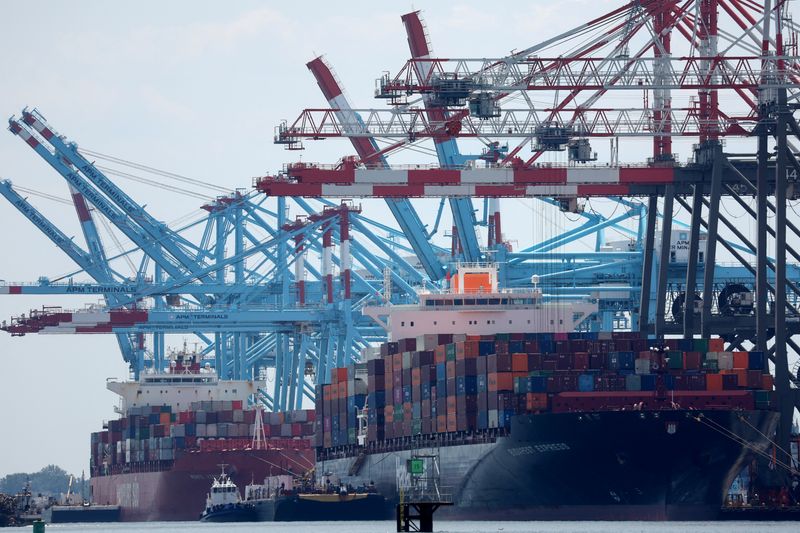By Howard Schneider
JACKSON HOLE, Wyoming (Reuters) – U.S. trade has shifted away from China due to policies enacted by the Biden and Trump administrations, but U.S. reliance on China-linked supply chains has not necessarily been reduced and consumers have faced higher costs, according to new research presented on Saturday at a Federal Reserve economic symposium.
Despite deglobalization fears after the coronavirus pandemic and Russia’s invasion of Ukraine, overall trade “has held steady at just under 60% of world (gross domestic product)rather than gone into freefall,” Laura Alfaro, an economist at Harvard Business School, and Davin Chor, an associate professor at the Tuck School of Business at Dartmouth, concluded in their paper, which was presented at the annual gathering of central bankers and economists in Jackson Hole, Wyoming.
But U.S. tariffs on Chinese goods, recently enacted industrial policies, and the pandemic, do seem to have touched off a “‘great reallocation’ in supply chain activity: Direct US sourcing from China has decreased,” from 21.6% of U.S. imports as of 2016 to 16.5% last year, Alfaro and Chor wrote.
What’s less certain is what that means, with the authors saying the shift from China is raising prices for consumers without clearly providing offsetting benefits in the form of, for example, improved manufacturing efficiency in the U.S.
It is not even certain that the decline in China’s U.S. import share represents a true delinking, they said.
Vietnam and Mexico, for example, appear to have captured much of the reallocated trade, the authors said, based on an analysis of goods import and export patterns, while an increase in U.S. purchases of less processed goods from abroad was “indicative of some reshoring of production stages.”
And among companies, they said, “concerns are being voiced over the wisdom of sprawling supply chains that can expose firms and countries to the risk of disruptions,” from events like the pandemic or severe weather, or policy shocks like tariffs.
Yet in the background, the researchers noted that China had “stepped up” its trade and investment activity with Vietnam and Mexico, as well as other countries.
“The U.S. could well remain indirectly connected to China through its trade and global value chain links with these third-party countries,” they argued.
Prices for goods from some countries, moreover, were beginning to rise.
“The recent policy restrictions to shift sourcing patterns or even to encourage substitution toward domestic inputs are poised to add to wage and cost pressures in the U.S.,” the research found, a pointed conclusion as the Fed tries to lower inflation by slowing the U.S. economy.
(Reporting by Howard Schneider; Editing by Paul Simao)
